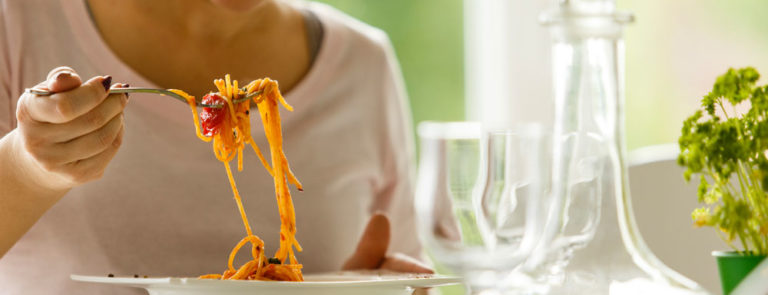15% off €30 or 20% off €40
Code:CHOOSE
Anaemia: what you need to know

While iron deficiency anaemia the most common of the disorder, there are other types of anaemia out there. Here’s what you need to know including symptoms.
Iron deficiency anaemia is the most common nutritional disorder in the world, but it’s not the only type of anaemia out there. Find out what anaemia really is and how to beat it
Written by Cheryl Freedman on January 22, 2019 Reviewed by Dr Rob Hicks on January 30, 2019
Do you always feel exhausted, no matter how much sleep you get? Have friends said you look pale, or do you often get out of breath? If you answered yes, it’s easy to assume you might just be a bit run down. But these are all symptoms of anaemia, too.What is exactly is anaemia?
Anaemia is a condition where you don’t make enough red blood cells or your body destroys too many red blood cells, or the blood cells you do make are faulty in some way.1 There are 400 different types of anaemia, but the most common are:- iron deficiency anaemia – this affects 2 billion people globally2
- vitamin B12 deficiency anaemia
- folate (vitamin B9) deficiency anaemia
What are the symptoms of anaemia?
Red blood cells contain haemoglobin, the protein that makes them look red, and it is haemoglobin’s job to carry oxygen around your body.4 When your body makes too few red blood cells, or each one only contains a small amount of haemoglobin, your tissues and organs become starved of oxygen, leaving you feeling wiped out. Common symptoms for all types of anaemia5 include:- tiredness and fatigue
- breathlessness
- feeling faint or dizzy
- palpitations
- pale skin
What causes anaemia?
This depends on the particular type:- Iron deficiency anaemia – we need iron to help us make red blood cells as it's a key component of haemoglobin. Our bodies can't make iron on its own, so we need to get enough through our diet.9 But a lack of dietary iron is not the only cause of iron deficiency anaemia. A common cause is bleeding, where you lose more iron than you can replace. This includes women with heavy or prolonged periods, and those with internal bleeding from the stomach and intestines, for example, caused by regularly taking NSAID painkillers, such as aspirin.10 If you eat an unbalanced diet, or are vegan or vegetarian, you could be at risk of iron deficiency as haem iron from animal sources is easier to absorb than non-haem iron from plant sources.11 Pregnant women are also at risk as they need additional iron to support themselves and their growing baby.12
- Vitamin B12-deficiency anaemia – the most common cause in the UK is an autoimmune condition called pernicious anaemia, where your immune system attacks the stomach cells that help you absorb vitamin B12.13 However, if you’re vegan or vegetarian, you might find it tricky to get enough vitamin B12 as it is mainly found in foods like meat, fish and eggs.
- Folate-deficiency anaemia – this is found in people who have digestive issues, such as Crohn’s or coeliac disease, that make it hard to absorb nutrients, and in those who aren’t getting enough folate in their diets. This may be because they have an unhealthy diet without enough nutrients, or consume too much alcohol.14
How to prevent anaemia
Getting enough nutrients in your diet is a good place to start. For extra iron, up your intake of dark green leafy vegetables such as kale or watercress, red meat, dried fruit, fortified foods, and pulses including beans and lentils.15 Avoid drinking too much tea or coffee, or foods that contain a lot of phytic acid, such as wholegrain cereals, at the same time as consuming iron-rich foods, as these can block iron absorption.16 Eating non-haem iron with a source of vitamin C, such as a glass of orange juice, can help increase absorption of iron.17 For folate, eat more broccoli, chickpeas and brown rice, while B12-rich foods include meat and liver, fortified foods such as plant milks and breakfast cereals, and yeast extract.18 If you’re following a vegetarian or vegan diet, you could consider a multi-vitamin and mineral supplement to cover all your bases. Women should take 400mcg of folic acid daily whilst trying to become pregnant and for the first 12 weeks of pregnancy to help prevent neural tube birth defects such as spina bifida, in their baby.19 Some women need to take a higher 5mg folic acid supplement every day – ask your doctor whether this applies to you.How is anaemia treated?
If changing your diet hasn’t helped your iron deficiency, your GP may prescribe iron tablets – these are much stronger than those you can buy over-the-counter, so like all medicines and supplements, keep them out of reach of children.21 Any underlying cause of iron deficiency will also likely be treated, for example, heavy periods. To boost your vitamin B12 levels, you may be given injections until your symptoms improve, or prescribed vitamin B12 tablets. A folate deficiency can be treated with folic acid supplements.20
Advice is for information only and should not replace medical care. Please check with your GP before trying any remedies.
1. Peter Lam. Medical News Today. Everything you need to know about anaemia
7. As Source 5
8. As Source 5
10. As Source 6
11. As Source 9
12. As Source 6
14. As above
15. As Source 6
16. As Source 6
17. As Source 9
18. As Source 13



